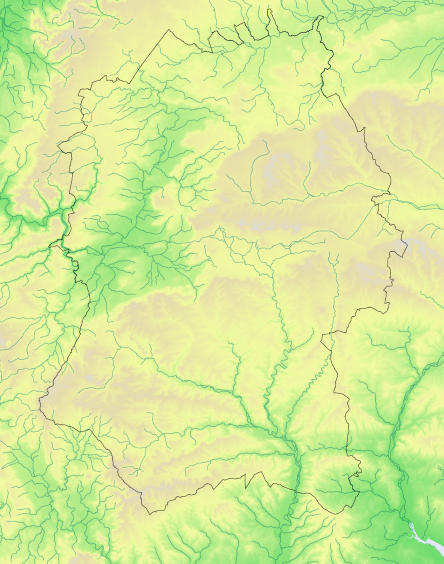Tree Pipit Anthus trivialis
Breeding distribution 1995–2000
Fairly common if local summer visitor, breeds Europe, winters Africa
Atlas species lists
- Breeding distribution 1995–2000
- Summer abundance 1995–2000
- Winter distribution 1995–2000
- Winter abundance 1995–2000
- Breeding distribution 2007–2012
- Summer abundance 2007–2012
- Winter distribution 2007–2012
- Winter abundance 2007–2012
- Breeding distribution change
- Summer abundance change
- Winter distribution change
- Winter abundance change
More Tree Pipit maps
- Breeding distribution 1995–2000
- Summer abundance 1995–2000
- Winter distribution 1995–2000
- Winter abundance 1995–2000
- Breeding distribution 2007–2012
- Summer abundance 2007–2012
- Winter distribution 2007–2012
- Winter abundance 2007–2012
- Breeding distribution change
- Summer abundance change
- Winter distribution change
- Winter abundance change
More maps for this atlas
Map explanation
This map shows the breeding season distribution of the species in Wiltshire as revealed by the fieldwork for Birds of Wiltshire (Wiltshire Ornithological Society 2007).
Key
Status
Nos tetrads

Present
63
7%

Confirmed breeding
84
9%
Total
147
16%
Tree Pipits breed across Eurasia from Great Britain east to Mongolia and north almost to Norway's Arctic coast. Their southern range extends from northern Spain through Italy, the Balkans, northern Turkey and Iran to Himachal Pradesh in India. A few of them winter on the western Mediterranean islands and in the Middle East, but mostly they migrate to sub-Saharan Africa or the Indian subcontinent.
In Britain Tree Pipits had expanded north into Scotland during the 20th century, but at the same time they were decreasing in southern England. Bird Atlas 2007-2011 recorded a 29% reduction in distribution since the 1968-72 Breeding Atlas, most of which occurred in southeast, central and northern England. Their main strongholds are oak and birch woodlands in upland areas of Wales, northern England and Scotland. The decreases in lowland areas are believed to result mainly from habitat changes.
In Wiltshire Tree Pipits were described as "far from common" in the 19th century but "tolerably abundant" in the first half of the 20th century. By the end of the 20th century they were virtually confined to three main areas. Savernake and part of the Marlborough Downs in the northeast, Salisbury Plain in the centre and the downs and woodlands of the south. Birds of Wiltshire recorded them in 147 tetrads, with breeding in 84 of them. By the time of WTA2 their range had contracted to 102 tetrads with breeding recorded in only 43
.References
The following references are used throughout these species accounts, in the abbreviated form given in quotation marks:
“1968-72 Breeding Atlas” – Sharrack, J.T.R. 1976: The Atlas of Breeding Birds in Britain and Ireland. T. & A. Poyser
“1981-84 Winter Atlas” – Lack, P.C. 1986: The Atlas of Wintering Birds in Britain and Ireland. T. & A. Poyser
“1988-91 Breeding Atlas” – Gibbons, D.W., Reid, J.B. & Chapman, R.A. 1993: The New Atlas of Breeding Birds in Britain and Ireland 1988-91. T. & A. Poyser
“Birds of Wiltshire” – Ferguson-Lees, I.J. et al. 2007 : Birds of Wiltshire, published by the tetrad atlas group of the Wiltshire Ornithological Society after mapping fieldwork 1995-2000. Wiltshire Ornithological Society.
“Bird Atlas 2007-2011” – Balmer, D.E., Gillings, S., Caffrey, B.J., Swann, R.L., Downie, I.S. and Fuller, R.J. 2013: Bird Atlas 2007-2011: the Breeding and Wintering Birds of Britain and Ireland
“WTA2” – ("Wiltshire Tetrad Atlas 2 ") the present electronic publication, bringing together the Wiltshire data from “Birds of Wiltshire” and “Bird Atlas 2007-11”, together with data from further fieldwork carried out in 2011 and 2012.
"Hobby" - the annual bird report of the Wiltshire Ornithological Society.

